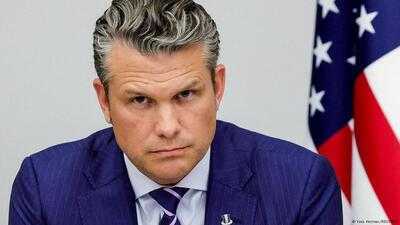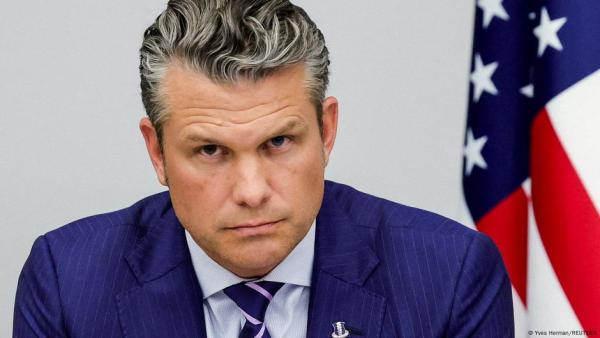

The strikes on two different boats are the first such attacks on vessels in the Pacific Ocean. The Trump administration is targeting boats it says are involved in transporting drugs to America.Two new US strikes on alleged drug-smuggling boats in the eastern Pacific have killed five people in total, Defense Secretary Pete Hegseth has said. Both vessels were "known by our intelligence to be involved in illicit narcotics smuggling," were "transiting along a known narco-trafficking route" and were "carrying narcotics," Hegseth said of the strikes in two separate posts on X on Wednesday. They were both in international waters, according to Hegseth. Three people were killed in the attack announced late Wednesday, while two died in the previous strike, which apparently took place on Tuesday. Hegseth referred to those killed as "narco-terrorists." Both videos show similar speedboats moving fast along the water before being hit by a projectile. The boats are then engulfed in flames, floating on the water. One video shows large packages floating on the water's surface after the strike. First attacks on alleged drug smugglers in the Pacific The administration of President Donald Trump began to deploy stealth warplanes and Navy ships in September as part of what it says are efforts to counter drug trafficking to the United States. These two attacks in the eastern Pacific, which spans the west coast of the Americas, mark a shift in the campaign. Previous US strikes targeted vessels in the Caribbean to the east of Central America. Most of the cocaine smuggled into the US crosses overland into the country from Mexico, according to the US Justice Department. But it mostly arrives in Mexico from Colombia and Peru, the world's largest cocaine producer, via the Eastern Pacific rather than via the Caribbean. Are the US strikes on boats in international waters legal? Since September, the US has killed at least 37 people in nine strikes on boats that the Trump administration says were smuggling drugs. Numerous legal experts and rights groups have criticized the summary killings, saying they are illegal even if they target confirmed narcotics traffickers. On Tuesday, UN experts said the "use of lethal force in international waters without proper legal basis violates the international law of the sea." It "amounts to extrajudicial executions," the experts said in a statement by the UN's human rights office OHCHR. The Trump administration has said the strikes are legitimate. It has declared Latin American drug cartels to be unlawful combatants and terrorist groups who must be met with military force. US strikes ramp up regional tensions The US strikes have fueled tensions with countries in the region. This is especially the case with Venezuela, where the buildup of US forces has sparked fears that the ultimate goal is the overthrow of President Nicolas Maduro. The US accuses Maduro of heading a drug cartel. The US has massively increased its presence in the Caribbean to some 10,000 troops as well as dozens of military aircraft and warships. Last week, Trump confirmed authorizing the CIA to conduct covert operations in Venezuela. Meanwhile, a public feud between Trump and Colombia's leftist leader Gustavo Petro intensified in recent weeks over the Republican president's deadly anti-drug campaign. Trump on Sunday vowed to end all aid to Colombia, the world's leading cocaine producer, and branded Petro as an "illegal drug dealer." Colombia on Monday recalled its ambassador to the United States. Edited by: Roshni Majumdar